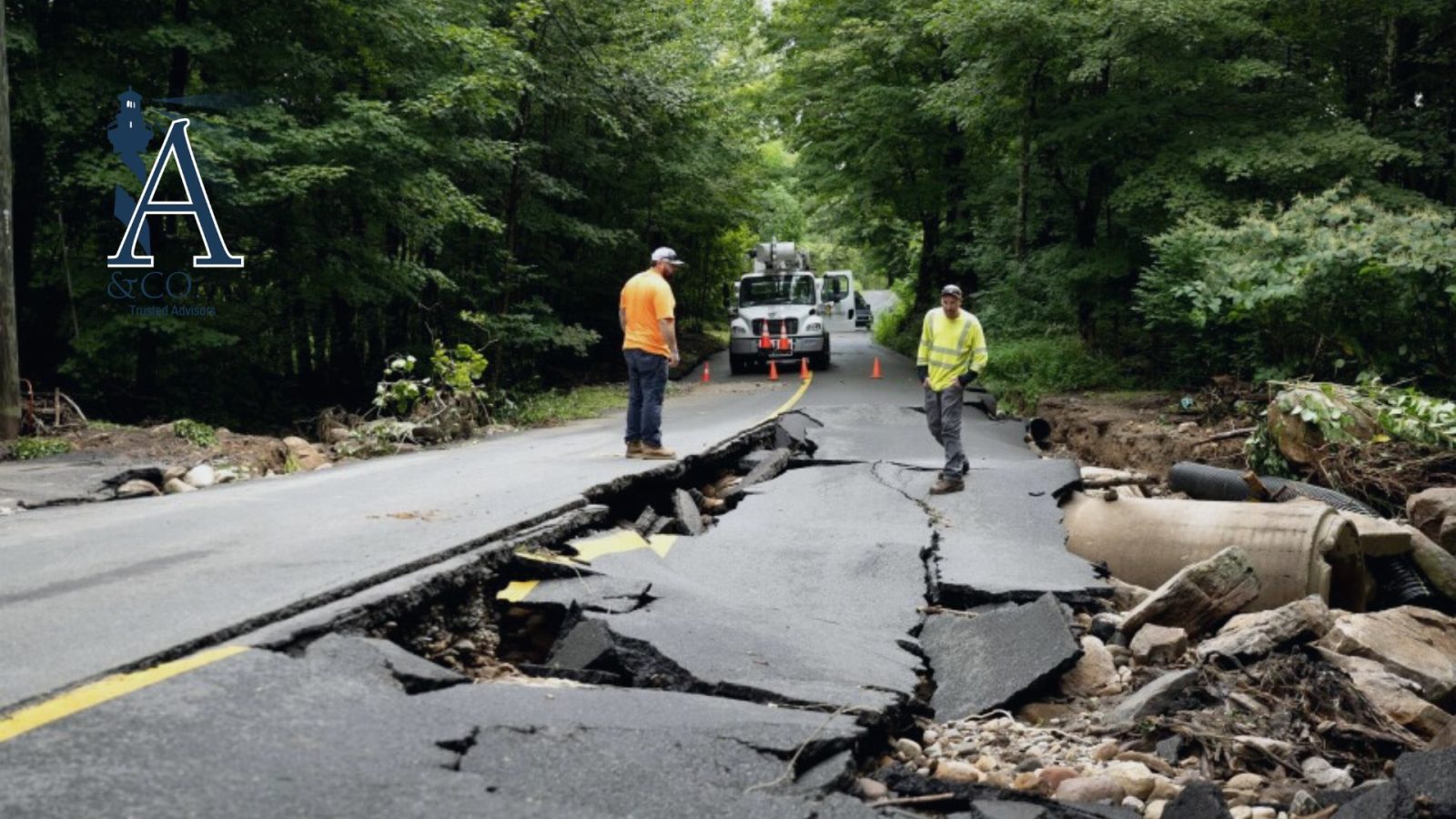The IRS has announced tax relief for individuals and businesses in Connecticut who were impacted by the severe storms, flooding, landslides, and mudslides that began on August 18, 2024. This relief extends key tax filing and payment deadlines, providing much-needed time for those recovering from these disasters.
Who Qualifies for This Relief?
If you live or have a business in Fairfield, Litchfield, or New Haven counties, you are eligible for this IRS tax relief. The relief applies automatically, meaning there is no need to contact the IRS to receive the extension.
What Deadlines Have Been Extended?
Any federal tax filings and payments that were due after August 18, 2024, are now postponed until February 3, 2025. Here are some key deadlines included:
- 2023 Tax Returns: If you had an extension to file your 2023 tax return by October 15, 2024, you now have until February 3, 2025, to file. However, this does not extend the time to pay taxes originally due in April 2024.
- Estimated Tax Payments: The quarterly estimated tax payments due on September 16, 2024, and January 15, 2025, are postponed to February 3, 2025.
- Business Tax Filings: This includes businesses with extensions, such as partnerships and S corporations with 2023 extensions running out on September 16, 2024, and calendar-year corporations with extensions running out on October 15, 2024.
- Payroll and Excise Tax: Employers have until February 3, 2025, to file their quarterly payroll and excise tax returns, which were originally due on October 31, 2024, and January 31, 2025. Additionally, penalties for late payroll and excise tax deposits will be waived as long as deposits are made by September 3, 2024.
What If You Received a Late Notice?
If you receive a late filing or payment notice from the IRS with a due date between August 18, 2024, and February 3, 2025, call the IRS using the contact information on the notice to request an abatement of penalties.
Additional Tax Benefits
For taxpayers who suffered uninsured or unreimbursed disaster losses, you have the option of claiming those losses on your 2023 or 2024 tax returns. When filing, be sure to include the FEMA disaster declaration number (3612-EM) on your return to receive this benefit.
Tax Relief for Non-Residents
Even if you live outside the designated disaster areas, you may qualify for relief if your tax records or your tax preparer’s office is located in one of the affected areas. Contact the IRS disaster hotline at 866-562-5227 to request relief.
Need Assistance?
Our firm is here to help you navigate these changes and ensure your tax filings remain compliant. Whether you need assistance with filing, calculating payments, or understanding how this relief applies to you, we’re available to guide you through the process.
For further questions or support, don’t hesitate to contact us at (203) 925-9600 or email [email protected].



